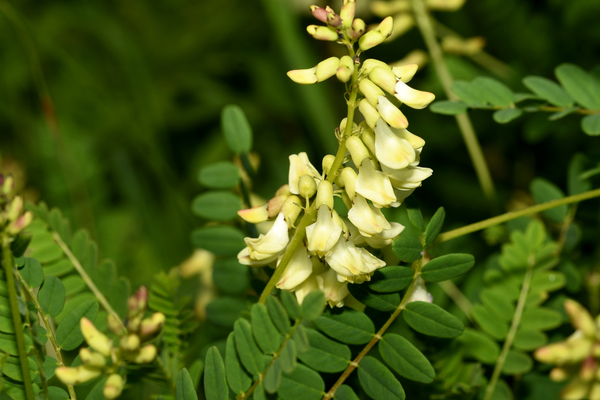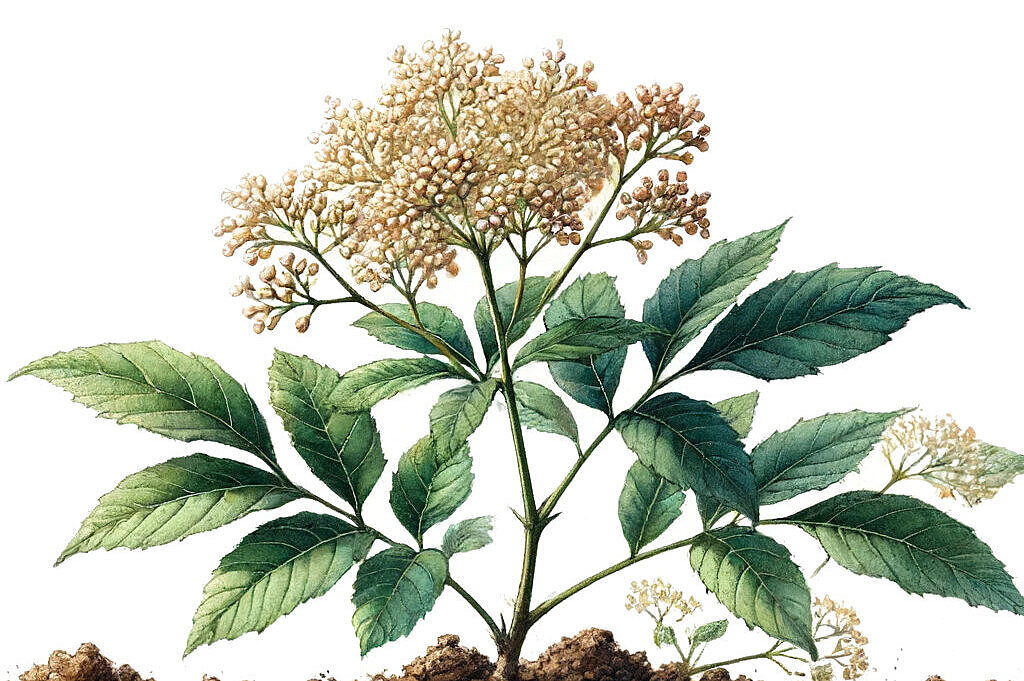Echinacea

What is Echinacea?
Echinacea is a genus of plants from the composite family, which includes several species of herbaceous plants. The best-known species are Echinacea purpurea (red coneflower), Echinacea angustifolia (narrow-leaved coneflower) and Echinacea pallida (pale coneflower). The plants originate from North America and were already used as a remedy by the indigenous peoples. The roots, leaves, flowers and seeds contain various ingredients that are said to have a positive effect on the immune system. These include polysaccharides, alkylamides, flavonoids, caffeic acid derivatives and essential oils.
How does echinacea work?
Echinacea is said to stimulate and support the immune system in various ways. On the one hand, it is said to promote the formation of antibodies that are specifically directed against pathogens. On the other hand, it is said to increase the activity of macrophages and natural killer cells, which eliminate non-specific harmful organisms. In addition, echinacea is said to have anti-inflammatory, antioxidant, antiviral, antibacterial and wound-healing effects. Thanks to these diverse effects, echinacea is said to strengthen the body's own defenses and prevent or fight infections.
What are the benefits of echinacea for dogs?
Echinacea can be used in dogs as an accompanying therapy for various illnesses that weaken or burden the immune system. These include, for example
- Infections of the respiratory tract such as coughs, bronchitis or kennel coughs
- Urinary tract infections such as cystitis or pyelonephritis
- Skin infections such as abscesses or poorly healing wounds
- Viral infections such as herpes or distemper
- Allergies or autoimmune diseases
Echinacea can also be used to prevent infections, e.g. in young or old dogs, chronically ill dogs or dogs in stressful situations. By strengthening the immune system, echinacea can improve the dog's general well-being and vitality.
What are the side effects of echinacea in dogs?
Echinacea is generally well tolerated by dogs and has few side effects. However, there are a few points you should bear in mind before giving your dog echinacea:
- Echinacea should not be given continuously, as this can lead to overstimulation of the immune system. The recommended duration of use is a maximum of two to three weeks. After that, a break of at least 14 days should be taken.
- Echinacea should not be used in dogs whose immune system is weakened, e.g. in dogs with leukemia or AIDS or in dogs receiving immunosuppressive drugs such as cortisone. In these cases, echinacea can weaken the effect of the medication or cause undesirable interactions.
- Echinacea should not be used in dogs with an existing allergy to composite plants, as allergic reactions may occur.
Echinacea is a plant genus that can stimulate and support the immune system. It contains various ingredients, including polysaccharides and flavonoids, which have an effect on the immune system. Echinacea can help dogs to strengthen their immune system and provide support in the event of infections, allergies or autoimmune diseases. However, it should not be given long-term and should be avoided if the immune system is weakened. Dogs with allergies to composite plants should not be given echinacea.
If you notice any signs of hypersensitivity or poisoning in your dog, you should see your vet immediately. We are not a substitute for a vet, but we try to be as accurate as possible. Every dog reacts differently and we recommend you get a second opinion or consult your vet if in doubt.
Stay healthy and take good care of your four-legged friend!😊
Similar to Echinacea
Tragacanth is the German name for the plant genus Astragalus, which comprises over 2000 species. However, not all species are suitable for medicinal purposes, but only the subspecies Astragalus...
Ginseng belongs to the Araliaceae family and grows mainly in China, Korea and Japan. The plant has green leaves and red berries, but the most important thing is its fleshy root. This has the shape...
Elderflowers have a number of positive effects on dogs, mainly due to their high content of flavonoids, vitamin C and essential oils. These ingredients can help to strengthen the immune system,...
Kalmegh, also known as 'Indian Echinacea', is a plant native to tropical areas of Asia. It is traditionally used to treat a variety of ailments, including infections, fevers and as a liver...



